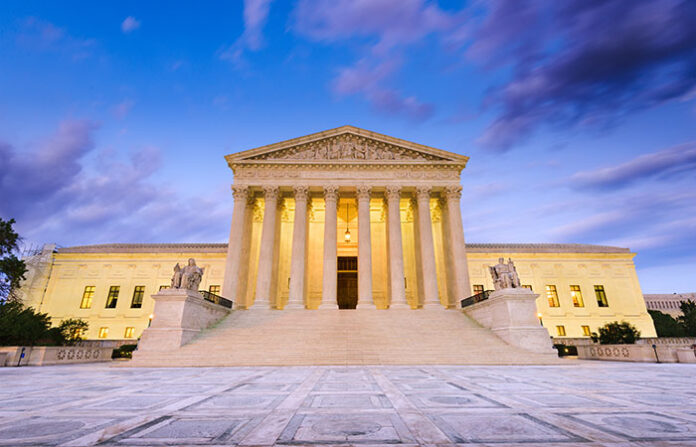Shortly after opening its 2019 session, the U.S. Supreme Court surprised the business world when it unanimously ruled that independent contractors who work in transportation may not be forced into mandatory arbitration. The case, New Prime v. Oliveira, originated as a class-action suit in 2015 when long-haul truck driver Dominic Oliveira sued a trucking company for failing to receive the minimum wage.
Legal experts called it an unexpected victory at the highest level for workers because the court found that under the Federal Arbitration Act–typically seen as employer-friendly–truck drivers working as independent contractors cannot be coerced into private arbitration.
In announcing its unanimous decision, Justice Neil Gorsuch wrote that language in the Act–specifically “contract of employment”–was understood to encompass “work agreements involving independent contractors.” As a result, Oliveira, along with other truckers and transportation contractors, qualify for the FAA’s exemption and his class-action lawsuit may proceed in court.
Arbitration has long been controversial in the U.S. workplace. According to a March 2018 report, 80 of America’s Fortune 100 companies have used arbitration to resolve employment disputes since 2010. (Arbitration typically involves confidential proceedings conducted privately and out of court.)
According to employment-law experts, the New Prime case, along with two other arbitration-based cases–Lamps Plus Inc. v. Vareda, and Henry Schein Inc. v. Archer and White Sales Inc.,–could impact how employers use the dispute-settling process going forward.
“Given the increasing importance of arbitration in resolving employment disputes, the court’s arbitration-related cases will all impact employers in significant ways,” says Chris Murray, a shareholder in the Indianapolis office of Ogletree, Deakins, Nash, Smoak & Stewart.
Lamps Plus Inc. v. Vareda
John Lewis, a partner in the Cleveland office of Baker Hostetler, says the oral argument here suggests a return to pro-arbitration opinions, explaining that general language in an arbitration agreement is unlikely to be sufficient to authorize class arbitration.
“That’s especially so when a majority of justices would view it as inconsistent with the basic tenants of arbitration itself,” he says.
In this case, the lower district court had denied the company’s motion to compel individual arbitration and ordered class arbitration and a divided Ninth Circuit panel agreed.
During oral argument, Lewis says, the familiar divide between the court’s liberal and conservative justices was obvious. Justice Elena Kagan asked questions directed to the contract language that required the parties to use arbitration “in lieu of any and all lawsuits or other civil proceedings.” On the other end of the spectrum, Chief Justice John Roberts commented: [T]he FAA is not a suicide pact. So, if the FAA says enforce the contract according to its terms, but one of the terms . . . is fundamentally inconsistent with arbitration itself, then, presumably, the FAA would preclude that term.”
Most defendants–i.e. employers–want to avoid class arbitration, says Ogletree Deakins’ Murray. For one thing, he says, there’s no right to appeal bad decisions in arbitration.
“A defendant who receives an incorrect adverse decision in a class arbitration is likely stuck with it,” he says. “That’s a huge risk most defendants don’t want to take. “
He adds that the Supreme Court has previously told employment lawyers that defendants cannot be forced into class arbitration unless they agree to it, though some lower courts and arbitrators have still ordered class arbitration based on ambiguous language that they find agreeable to class arbitration.
In this case, Murray says, the court may offer guidance on whether such “implied” agreements based on ambiguous language are enough or whether class arbitration may be ordered only where defendants clearly and expressly agree to it.
“This case will be of huge importance for employers that do not adopt express class action waivers but nevertheless do not want to agree to class arbitration,” Murray says.
Henry Schein Inc. v. Archer and White Sales Inc.
In this case, the court will address an important technical issue: when the parties have agreed as a general matter that an arbitrator has authority to decide whether specific questions are covered by their arbitration agreement, does that mean courts must send all such “arbitrability” questions to the arbitrator, even ones that are “wholly groundless”?
“The justices seemed inclined during oral argument to answer this question in the affirmative,” Murray says. “That outcome would expand the scope of arbitration but could also potentially increase costs in the long run.”



